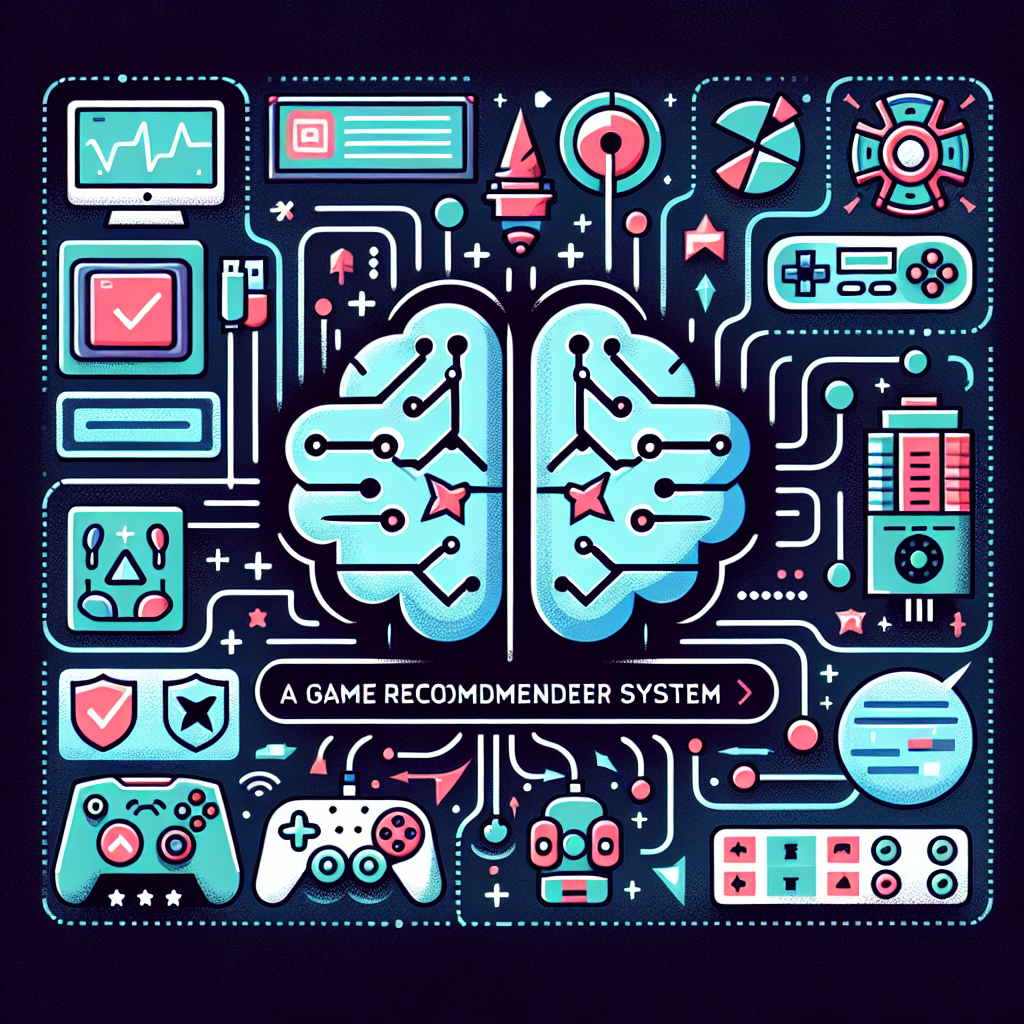AI-Powered Game Recommender Systems: Revolutionizing the Gaming Industry
In recent years, the gaming industry has seen a significant shift towards personalization and customization. With millions of games available across various platforms, it can be overwhelming for gamers to find the right game that suits their preferences. This is where AI-powered game recommender systems come into play, revolutionizing the way players discover new games and enhancing their overall gaming experience.
What is an AI-Powered Game Recommender System?
An AI-powered game recommender system is a technology that uses artificial intelligence algorithms to analyze a player’s preferences, gaming habits, and behavior to recommend games that are likely to appeal to them. These systems take into account various factors, such as genre preferences, game play history, social interactions, and reviews to provide personalized recommendations to players.
How Does an AI-Powered Game Recommender System Work?
AI-powered game recommender systems work by collecting and analyzing data from various sources, such as player profiles, game libraries, playtime data, and user reviews. The system uses machine learning algorithms to process this data and build a personalized profile for each player. By analyzing this profile, the system can recommend games that are similar to the ones the player has enjoyed in the past or games that are trending among players with similar preferences.
Benefits of AI-Powered Game Recommender Systems
1. Personalized Recommendations: One of the key benefits of AI-powered game recommender systems is their ability to provide personalized recommendations to players based on their preferences and gaming habits. This ensures that players are more likely to discover games that they will enjoy, leading to a more satisfying gaming experience.
2. Increased Engagement: By recommending games that are tailored to a player’s interests, AI-powered game recommender systems can help increase player engagement and retention. Players are more likely to continue playing games that they enjoy, leading to longer play sessions and increased loyalty to a gaming platform.
3. Discoverability: With millions of games available across various platforms, discoverability can be a major challenge for both players and game developers. AI-powered game recommender systems can help players discover new games that they may not have otherwise found, leading to increased exposure for indie developers and lesser-known titles.
4. Improved Monetization: By recommending games that are more likely to appeal to players, AI-powered game recommender systems can help increase the conversion rate of game purchases and in-game transactions. This can lead to higher revenue for game developers and publishers.
Challenges of AI-Powered Game Recommender Systems
While AI-powered game recommender systems offer many benefits, there are also challenges that need to be addressed:
1. Data Privacy: AI-powered game recommender systems rely on collecting and analyzing large amounts of player data to provide personalized recommendations. This raises concerns about data privacy and security, as players may be uncomfortable with sharing their personal information with these systems.
2. Bias and Fairness: AI algorithms can be biased based on the data they are trained on, leading to unfair recommendations for certain groups of players. It is important for game recommender systems to address issues of bias and ensure that recommendations are fair and inclusive.
3. Overfitting: AI algorithms may sometimes overfit the data, leading to inaccurate recommendations that do not reflect a player’s true preferences. It is important for game recommender systems to use robust machine learning techniques to avoid overfitting and provide accurate recommendations.
4. Lack of Transparency: AI algorithms can be complex and difficult to understand, making it challenging for players to trust the recommendations provided by game recommender systems. It is important for developers to make their algorithms more transparent and explainable to build trust with players.
FAQs
Q: How accurate are AI-powered game recommender systems in recommending games?
A: The accuracy of AI-powered game recommender systems can vary depending on the quality of the data and algorithms used. In general, these systems are able to provide fairly accurate recommendations based on a player’s preferences and gaming habits.
Q: Can AI-powered game recommender systems recommend games across different platforms?
A: Yes, AI-powered game recommender systems can recommend games across different platforms, as long as they have access to the necessary data and information about the player’s gaming habits.
Q: Are AI-powered game recommender systems limited to recommending popular games?
A: No, AI-powered game recommender systems can recommend both popular and lesser-known games based on a player’s preferences. These systems take into account various factors, such as genre preferences and playtime data, to provide personalized recommendations.
Q: How can players provide feedback on the recommendations provided by AI-powered game recommender systems?
A: Players can provide feedback on the recommendations provided by AI-powered game recommender systems by rating games, leaving reviews, or adjusting their preferences in the system. This feedback can help improve the accuracy of future recommendations.
In conclusion, AI-powered game recommender systems are revolutionizing the gaming industry by providing personalized recommendations to players based on their preferences and gaming habits. These systems offer many benefits, such as increased engagement, discoverability, and improved monetization. However, there are also challenges that need to be addressed, such as data privacy, bias, and overfitting. By overcoming these challenges and building trust with players, AI-powered game recommender systems have the potential to transform the way players discover and enjoy games in the future.

